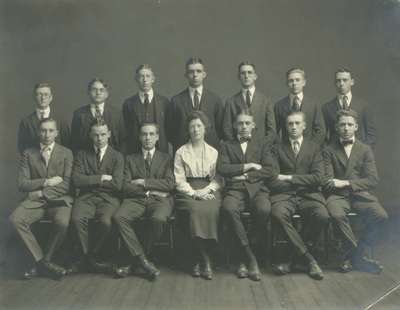Public relations efforts at UMass have shifted over the years from an early emphasis on education in agriculture and home economics to contemporary efforts to manage the torrent of information generated by a research university. The first news editor at UMass was not appointed until 1948, and as late as 1961, the entire central Public Relations staff consisted only of a news and publications editor, although the College of Agriculture hosted a separate staff of five. Since the 1960s, however, the public relations efforts have expanded as rapidly as the University as a whole. The position of Vice Chancellor for University Relations and Development was created in 1983, (called Vice Chancellor for University Advancement after 1993) to oversee public affairs, alumni relations, and development activities.
This record group consists of materials from the several offices concerned with the production of University publications and publicity. The records include press releases, brochures, guidebooks, newsclippings, newsletters, bulletins, weekly newspapers, semi-monthly feature publications, special publications and photographic negatives. Also included in this group are the following publications: Chancellor’s Monthly Press Briefings, Chancellor’s Annual Review of NewsClips, Commonwealth Research Reports, Campus Guidebooks, University Newsletter, Weekly Bulletin, Executive Bulletin, University Bulletin, brochures, Contact, UMass, Science Journal, University Notebook, Tips, News Summary, and the Commonwealth Journal.


 A number of student publications have been digitized and are indexed in
A number of student publications have been digitized and are indexed in 